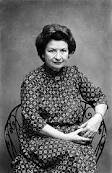The dating game...or how to be popular for 200 years
Nowadays we're all expected to be topical, abreast of the latest technological developments, consistently up in the newest buzz words, part of the "Now". The problem with this when writing a novel is that this can also make your up-to-the-minute contemporary novel feel dated within a very short space of time. That gag about the government, though wildly funny now, will not work in a year or two's time, that mention of the lead character's flared trousers will date the novel as surely as a 1974 copyright notice will. So how do you stay popular for 200 years? How do you make your novel both topical and eternal? As Jane Austen shows it's by writing about what doesn't change - relationships, and how to negotiate them.
Pride and Prejudice was first published in 1813. At the time of publication England was at war with France (and had been on and off since 1792), Luddite violence had swept through the country in the previous year and the Prime Minister, Spencer Perceval, had been assassinated, but none of this is reflected in Pride and prejudice. The only reason that you might have for suspecting that England is heavily involved militarily at this time, is the frequent mention of the militia (a source of handy men-friends for the young Bennets, Kitty and Lydia).
Pride and prejudice focuses on the Bennet family, the disappointed and cynical Mr. B., his incredibly silly wife (beautifully played by Alison Steadman in the BBC production), and the five sisters - beautiful, down-to-earth Jane, the sassy intelligent Elizabeth, bookish know-it-all Mary, young easily-led Kitty, and ignorant Lydia. The Bennets' home is entailed, meaning that the family will have to move house upon Mr. Bennet's death. This gives an added impetus to Mrs. Bennet's quest to find eligible husbands for all her daughters. Sweet Jane rapidly falls in love with the new neighbour, but Elizabeth gets on the wrong side of his snooty friend, Mr. Darcy, and vows not to marry him in spite of his vast fortune, but appearances can be deceptive, and Pride and prejudice charts the course of Darcy and Elizabeth's changing attitudes to each other.
Witty, funny, engaging and charming, Pride and prejudice has retained its popularity for 200 years, it is a period piece, but does not date. Everyone will know a Mrs. Bennet or a Jane, or a snob like Lady Catherine. Attitudes and mores may change, but human nature, for good or ill, alters surprisingly little. So....that is how to be popular for 200 years, cut back to the essence of what is important, be a stunningly good writer, and you too can be read in 200 years time.
Pride and Prejudice was first published in 1813. At the time of publication England was at war with France (and had been on and off since 1792), Luddite violence had swept through the country in the previous year and the Prime Minister, Spencer Perceval, had been assassinated, but none of this is reflected in Pride and prejudice. The only reason that you might have for suspecting that England is heavily involved militarily at this time, is the frequent mention of the militia (a source of handy men-friends for the young Bennets, Kitty and Lydia).
Pride and prejudice focuses on the Bennet family, the disappointed and cynical Mr. B., his incredibly silly wife (beautifully played by Alison Steadman in the BBC production), and the five sisters - beautiful, down-to-earth Jane, the sassy intelligent Elizabeth, bookish know-it-all Mary, young easily-led Kitty, and ignorant Lydia. The Bennets' home is entailed, meaning that the family will have to move house upon Mr. Bennet's death. This gives an added impetus to Mrs. Bennet's quest to find eligible husbands for all her daughters. Sweet Jane rapidly falls in love with the new neighbour, but Elizabeth gets on the wrong side of his snooty friend, Mr. Darcy, and vows not to marry him in spite of his vast fortune, but appearances can be deceptive, and Pride and prejudice charts the course of Darcy and Elizabeth's changing attitudes to each other.
Witty, funny, engaging and charming, Pride and prejudice has retained its popularity for 200 years, it is a period piece, but does not date. Everyone will know a Mrs. Bennet or a Jane, or a snob like Lady Catherine. Attitudes and mores may change, but human nature, for good or ill, alters surprisingly little. So....that is how to be popular for 200 years, cut back to the essence of what is important, be a stunningly good writer, and you too can be read in 200 years time.










Comments